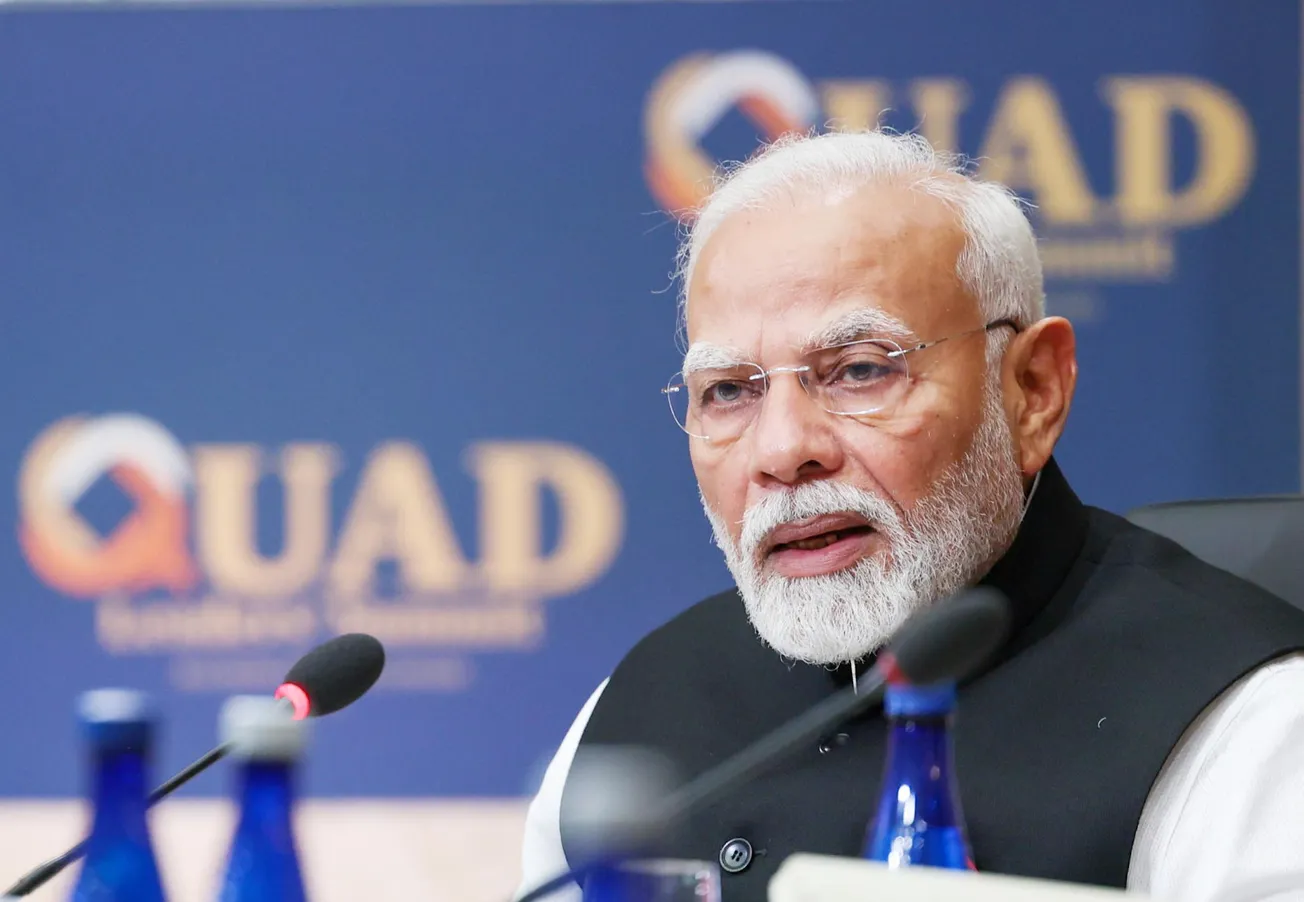Prime Minister Narendra Modi arrived in the U.S. today for a three-day visit, starting in Wilmington, Delaware, for the summit of the so-called “Quad” nations (U.S., Japan, Australia and India) and separate bilateral meetings with his counterparts there. On Sunday, Sept. 22, he heads up to New York for two days, where he will address a large meeting organized by the Indian-American community in Long Island, hold a roundtable with corporate CEOs, address the UN Summit of the Future on Sept. 23, and have a slew of bilateral meetings which were still being lined up when the Indian Foreign Ministry gave its Sept. 19 briefing on his trip.
India is no small country, with its continental territory and over 1.4 billion people. In his short statement upon leaving for the U.S. today, Modi recalled that when he addresses the UN Summit of the Future, “I will share views of the one-sixth of the humanity as their stakes in a peaceful and secure future are among the highest in the world.”
The Modi government has sought to straddle the worsening geopolitical divide in the world, sticking to a policy of “multi-alignment,” participating in both the BRICS and the Quad, for example, much to the frustration of Washington and London. U.S. National Security Advisor Jake Sullivan told the Indian press just a few hours before Modi left for Washington that top U.S. priorities for the Biden-Modi meeting was to get India to join the jihad against Russia, and line up with the U.S. against China.
Sullivan’s would-be dictates were splashed across the Indian media, as intended. The report in India’s daily Economic Times was typical: Sullivan told reporters “I won’t go too deep into the details of what Biden will say on those issues which are obviously sensitive and will obviously be critical priorities in the bilateral meeting,” but he then proceeded to warn: “The United States has been clear about our view that Russia’s brutal war of aggression against Ukraine flouted every norm and principle of international law, (and) that countries like India should step up and support the principles of sovereignty and territorial integrity.… Every country everywhere should refrain from supplying inputs to Russia’s war machine.” Sullivan added that Biden would “discuss China’s actions in the region, covering security, economic, and technological aspects,” suggesting the U.S. and India “coordinate their approaches in a way that benefits both nations,” as Economic Times paraphrased this statement.




